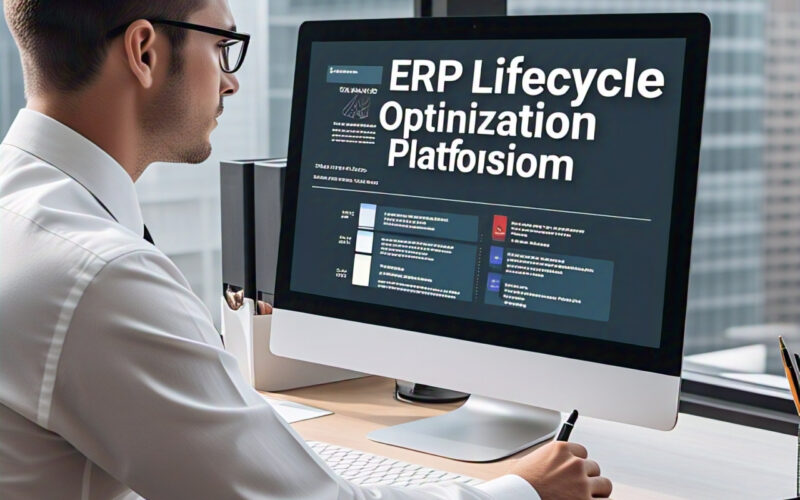For businesses of all sizes, enterprise resource planning (ERP) systems are a major investment. From finance to supply chain to human resources, these all-inclusive company management systems optimize operations across departments. But putting an ERP system into place is only the first step. Organizations must improve their ERP systems over the course of their whole lifespan in order to maximize return on investment and guarantee long-term profitability. The distinction between systems that are just functional and ones that are genuinely transformational can be determined by the ERP Lifecycle Optimization platform chosen.
1. Assess Your Organization’s Unique Requirements First
Document your organization’s unique demands, pain areas, and goals in detail before assessing any ERP Lifecycle Optimization systems. Take into account elements including industry-specific needs, system constraints at the moment, anticipated expansion, and your team’s present level of technical proficiency. By taking this first step, you avoid the usual mistake of getting influenced by striking aspects that don’t ultimately solve your main problems or fit with your strategic plan.
2. Prioritize Comprehensive Analytics and Monitoring Capabilities
The foundation of successful optimization is the capacity to obtain profound insights into the operation of your ERP system. Seek for systems that include comprehensive analytics dashboards that track user adoption data, system utilization trends, and key performance indicators in real time. You may find bottlenecks, unused features, and possibilities for process changes that have a direct impact on operational efficiency by using the technical performance statistics and business process analytics that the top platforms offer.
3. Evaluate Automation and AI-Driven Optimization Tools
In order to provide proactive system enhancements, contemporary ERP Lifecycle Optimization solutions are progressively integrating automation and artificial intelligence. Look for systems that can recommend configuration changes, automatically spot optimization possibilities, and even carry out regular maintenance activities without the need for human participation. These features greatly lessen the workload for IT personnel while guaranteeing that your ERP system continually adjusts to shifting business circumstances by using data-driven, intelligent suggestions as opposed to reactive troubleshooting.
4. Consider Integration and Ecosystem Compatibility
Your ERP system interacts with a wide range of apps and data sources rather than functioning independently. While accommodating any future expansions, the perfect optimization platform should provide smooth integration capabilities with your current technological environment. To make sure your optimization efforts complement rather than complicate your overall enterprise architecture, look for platforms with open APIs for bespoke connections, pre-built connectors to popular business apps, and compatibility with industry standards.
5. Investigate Vendor Support and Community Resources
An ERP Lifecycle Optimization platform’s long-term worth encompasses not just its technical prowess but also the surrounding ecosystem. Consider response times, degrees of experience, and accessible help channels when assessing the caliber and availability of vendor support services. Additionally, take into account the platform’s regularity of updates, training materials, and user community strength. These elements have a big influence on how well your team uses the platform over the course of your ERP system’s lifespan.
Conclusion
Choosing the right ERP Lifecycle Optimization platform is crucial for maximizing efficiency and long-term success. Opkey test automation stands out with its AI-driven impact assessment, advanced process mining, and intelligent observability, ensuring seamless ERP deployment, operation, and optimization. With industry-specific templates, proactive change management, and AI-powered virtual agents, Opkey streamlines workflows, reduces risk, and enhances system performance. Whether accelerating implementation, minimizing downtime, or enabling continuous innovation, Opkey safeguards your ERP investment. Trusted by leading enterprises, Opkey delivers measurable business value cutting costs, boosting productivity, and ensuring ERP systems evolve with your business.




